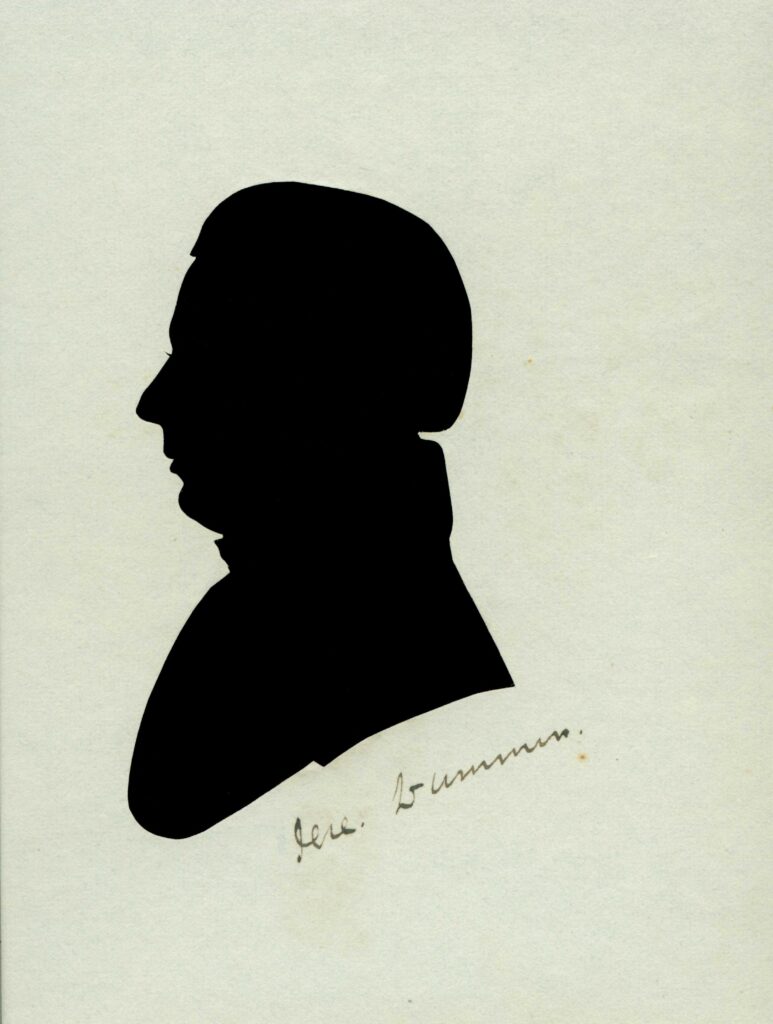
Doctor to the Shawnee
Jeremiah Dummer was born in 1805 in Hallowell, Maine. He was a member of one of the most powerful families in Kennebec County and his brother Charles Dummer was also a Bowdoin alumnus. In Hallowell, Dummer was likely acquainted with fellow residents George Barrell Cheever, James Milk Ingraham, Alfred Martin and John Odlin Page. At the age of 16, Dummer moved to Brunswick and began attending Bowdoin. Dummer boarded his first year at Mr. S. Owen’s, spent his sophomore year in Maine Hall, and then lived in the same room in Winthrop his junior and senior years. Dummer’s roommate through the entirety of his college career was Jonathan Cilley, suggesting a particularly close bond between the two. Dummer was also known to play cards with William Hale. Bowdoin’s Athenean Society claimed Dummer as a member. Dummer appears frequently as a troublemaker in the Records of the Executive Government. He was fined at least twelve different times by Bowdoin for infractions ranging from improper conduct in class to regularly missing prayers. Perhaps because of his chronic disobedience and neglect of his studies, Dummer did not receive a class rank and was not asked to speak at commencement.
After graduation, Dummer remained at Bowdoin to study at the Maine Medical School, from which he received an M.D. in 1828. He spent his first years as a doctor practicing in Kennebec County, before moving to Jacksonville, Illinois in 1833. Two years later he moved to Boonville, Missouri, but he only remained there for about a year. Dummer settled down permanently in 1836, with a move to Westport, Kansas. In Westport, he primarily worked for a doctor for the Native Americans at the Shawnee Mission. In the 1820’s and 30’s the Shawnee tribe was forcibly removed from Ohio and Pennsylvania and sent to Kansas. A Methodist reverend named Thomas Johnson founded a missionary society on their reservation. In 1839 a school opened at the site, where hundreds of native children from dozens of tribes were sent. As a devout Methodist, Dummer felt some draw towards the missionary aims of the settlement. Along with treating the medical ailments of the Shawnee tribe, Dummer attempted to “treat” their “spiritual welfare.” Though praised for this by his contemporaries, Dummer’s legacy regarding native peoples is far more complicated in the context of the 21st century. The doctor passed away in 1856, at the age of 51. He never married, nor had a family.